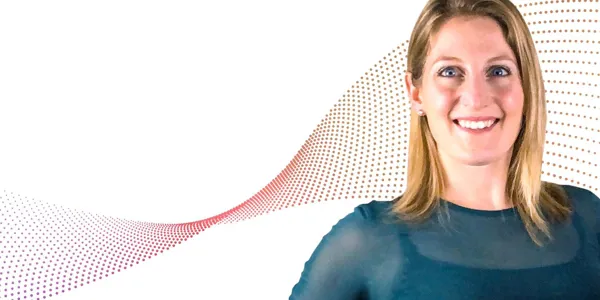Fran Boorman
People need to stop looking at social enterprise less as a business.

Published: 22/12/20
Fran Boorman has brought together her twin passions, sport and mentoring, in Goal 17, a business with real social impact aiming to help companies get the ‘people’ side right.
People need to stop looking at social enterprise less as a business. It solves bigger problems. My ultimate goal is to rewrite the rules when it comes to the purpose of business.
Fran Boorman had long recognised the power of sport to transform lives. A naturally sporty kid, she represented her school at rowing, football and netball before studying industrial design at super-sporty Loughborough University.
However, she was in her thirties before she found the path to embark on her career and find her real passion.
In these early years, she was also developing a keen interest in coaching. Having been energised by a trip to Uganda in September 2000, she began to plan her own expedition to the rural Kamuli District. Once there, she set up an aid project, running it over three years. For the local population it brought valuable skills, new community buildings and much-needed infrastructure while for those involved from the UK, it helped them develop their leadership skills. This showed how charitable projects could be a win-win for both sides.
After some years in the property industry, Fran realised she wanted more flexibility while raising her children. This was the moment for her first foray directly into entrepreneurship. She built a network marketing business, which quickly grew to achieve a multi-million-pound turnover. In the process, she supported hundreds of independent business-owners to create their own success. She pioneered various coaching techniques, helping businesses create a strong team culture built around sound ethics. She even found time to write a book, entitled ‘Connection Marketing’.
By 2018, she had begun to weave these various threads together. Fran became involved with the Street Soccer Foundation, a non-profit charitable organisation dedicated to helping support, educate and motivate vulnerable young people using the power of football as a catalyst to effect a positive social change in their lives. It was then she saw how the strong mentoring programme she had developed in business could be used to solve a social problem.
Fran launched Goal 17 in early 2018 with a twin purpose: to help companies build a mentoring culture in their business, while also offering better life chances for young people. Its name reflected the 17th UN Sustainable Development Goal – ‘Revitalize the global partnership for sustainable development’. This goal seeks to promote partnerships to solve significant problems. Goal 17 brings in corporate staff, who help train and mentor those on the programme, giving both sides vital skills.
It became a social impact business but, as Fran explains: “I was doing a lot of keynote speaking on businesses for social impact. You get a lot of charities and social enterprises focusing on social impact, not on commercial returns. In fact, business for good is good for business. I wanted to create a business that was more valuable because of its social impact.
The concept has found resonance with businesses, charities, technology providers and academic institutions. The ten week-long course has four main components: online training gives core skills on how to mentor; a ‘transformational day’ when employees meet their mentee; ‘extreme mentoring’, in which employees are supported in mentoring the young person; and a graduation, which takes place in the working environment.
Fran says that large companies often face significant ‘people’ challenges. Transformational change – such as digitisation – often don’t realise the results they should because companies simply don’t get the people bit right: “We see businesses that know they’ve got challenges but don’t know how to solve them. For us, it is about educating companies on diversity and inclusion, helping them feel confident managing a more diverse workforce. This is essential to an organisation’s sustainability.”
She believes many companies are too focussed on selling commercial returns and forget social impact. This leaves staff disengaged. Instead, incorporating strategies for mentoring and coaching can bring businesses greater loyalty and longevity. Fran says: “Commercially, this is a great decision.” It is perhaps particularly important at a time when many businesses are having to restructure as a result of the pandemic.
Goal 17 aims to trailblaze a new standard where companies get a genuine and measured return on investment while making a positive impact on society. The business has been building some important connections, having recently formed new partnerships with London Irish Rugby Club Foundation, its first non-football charity, and BNP Paribas. They are also recruiting new staff and turnover is growing.
For Fran, who started the business as a new challenge when her young children went to school, it fulfils a long-held focus on social impact and social mobility. She believes businesses today cannot simply sell themselves on the amount of money they make for shareholders; they need to have a purpose if they are to recruit the best people and find support from investors. Her conclusion? “Business for good is good for business."
